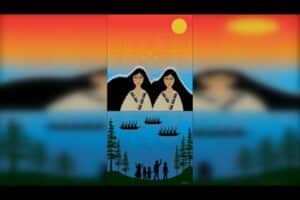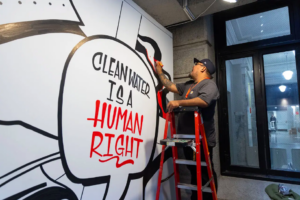Strengthening Relationships with Indigenous Communities
The West Vancouver Foundation understands the importance of acknowledging that the land on which we live and work is the unceded traditional territories of the Skwxwú7mesh (Squamish), and Səl̓ílwətaʔ/Selilwitulh (Tsleil-Waututh), and xwməθkwəy̓əm (Musqueam) Nations and we are grateful for the opportunity to do so. Acknowledging territory shows recognition of and respect for Indigenous people – both past and present. Recognition and respect are essential elements of establishing healthy and reciprocal relations, which are the key to working towards reconciliation.
The West Vancouver Foundation is committed to working together with our community towards a shared goal of reconciliation and we are committed to the Calls to Action of the Truth and Reconciliation Commission. The WVF Board of Directors have signed onto the The Philanthropic Community’s Declaration of Action. Our work includes a focus on funding and supporting projects related to reconciliation, and creating learning opportunities for our staff, Board and community about our shared history and opportunities to combine our strengths.
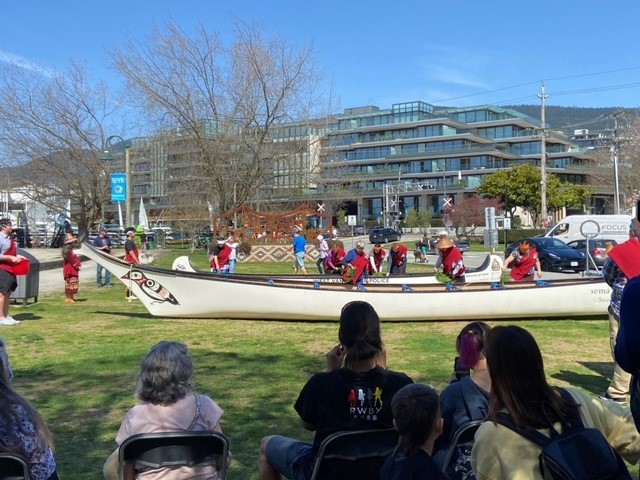
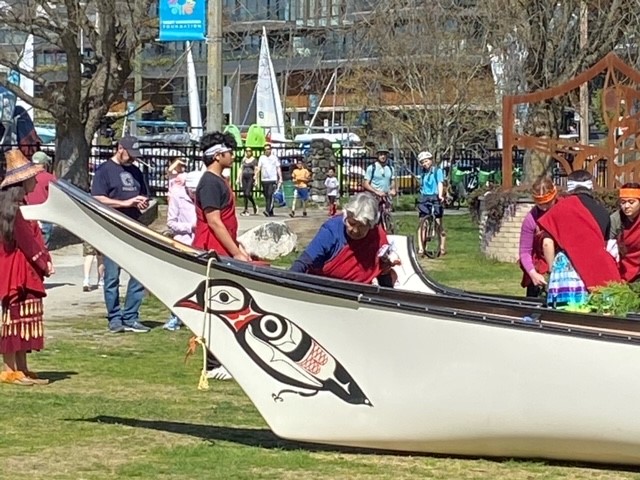
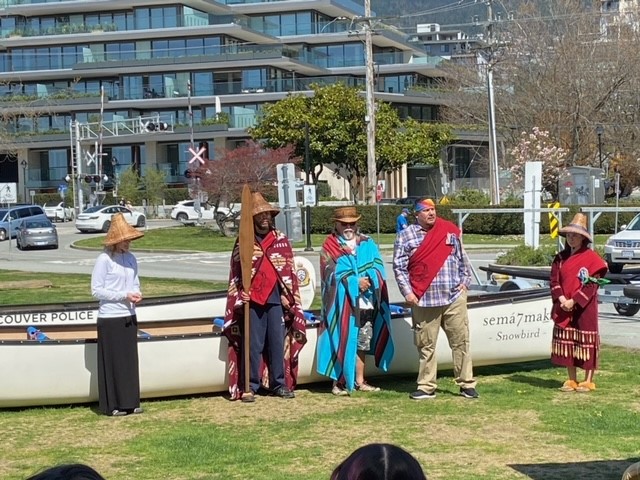
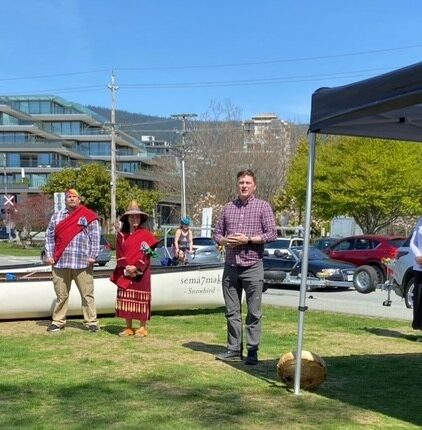
Right Relations
In alignment with our intent of building a stronger relationship with the Squamish Nation and deepen our understanding of key challenges and possible opportunities for future collaborative work, the Foundation received a grant from the Relationship & Reconciliation stream of the Strengthening “Right Relationships” Grant offered by Vancouver Foundation.
This year we have been working on our Right Relations initiative with various activities with the board, staff and volunteers. On September 21, 2024, board, staff and volunteers were invited on the Talking Trees tour by Talaysay Tours – on this nature walk through Stanley Park we were able to learn a little about how Indigenous people utilize the land for food, medicine and technology.
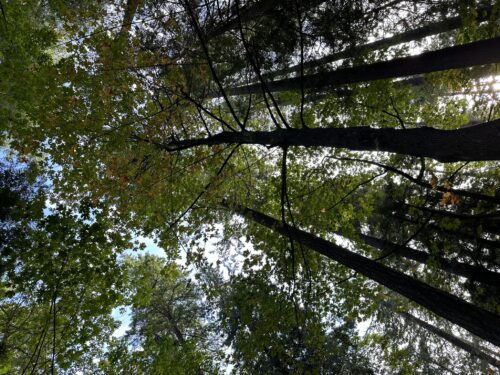
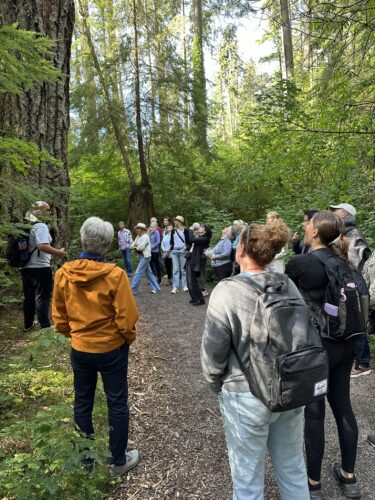
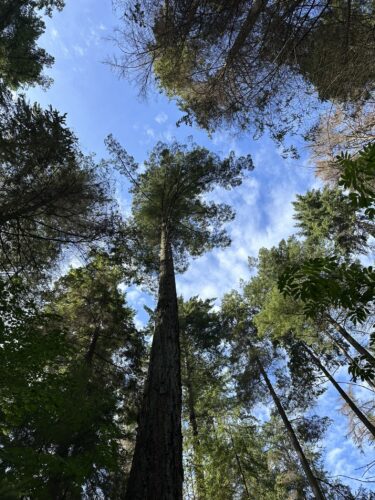
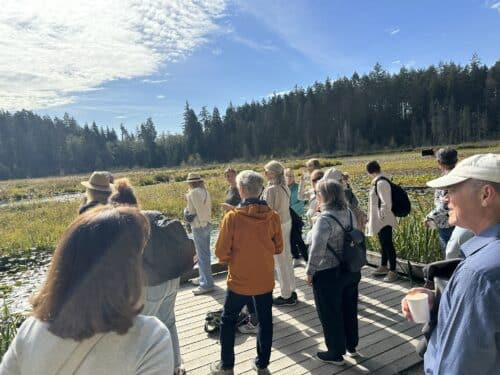
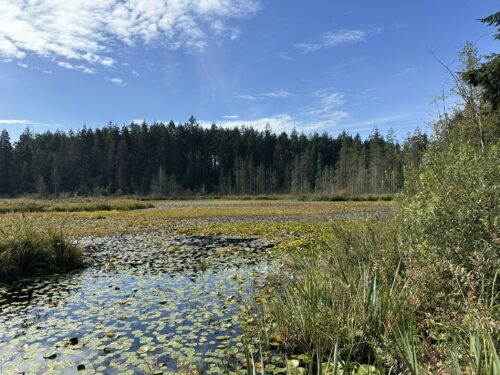
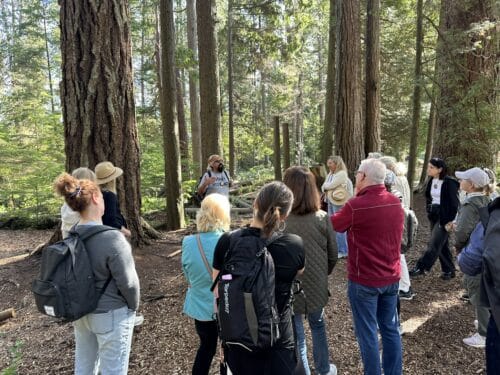
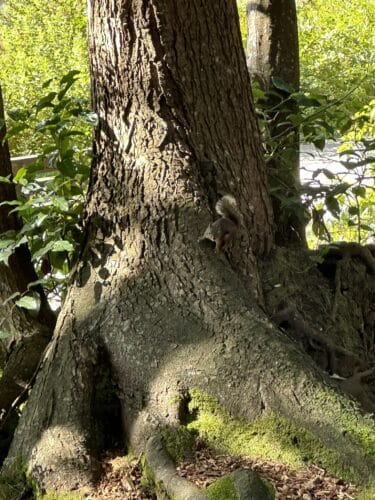
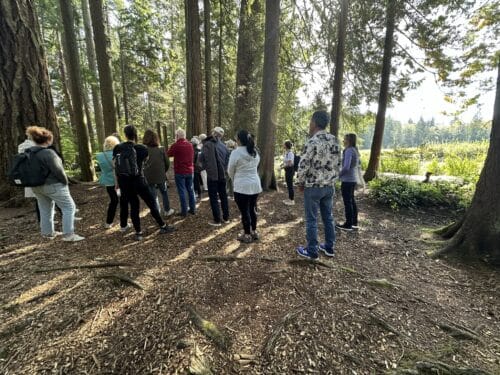
The Legend of the Two Sisters
It was thousands of years ago the great Tyee of our tribe had two daughters. They grew into womanhood and a mighty feast was to be given, such a feast as the Coast had never yet seen.
The only shadow was war, for the tribe of the great Tyee was at war with the Upper Coast Indians. Giant war canoes fretted the entire coastline, war parties paddled their way up and down, war songs broke the silence of the nights, strife, hatred, vengeance festered everywhere.
Days before the feast these two maidens came to the Chief, “Someday we may mother a man-child who may grow to be just such a great Tyee as you are. We have come to ask a favour. Will you invite the hostile tribes, the tribes you war upon, to our feast?”
“I can deny you nothing on this day and someday your sons may be born to bless this peace you have asked for” replied the Chief.
When the Northern Tribes received the invitation they flocked to the coast, to this feast of great peace. Never before was such a Potlatch. The war canoes were emptied of deadly weapons and instead filled with salmon. The hostile war songs ceased and in their place was laughter and singing, and the sound of children. The war songs had ended forever.
The Two Sisters were made immortal by the Great Spirit and will always be in that High Place. Their offspring now rule these tribes, for were not Peace and Brotherhood born of them? There the Two Sisters have stood for thousands of years, guarding the Peace of the Pacific coast and the serenity of the Capilano Canyon.
Elder Linda Williams, Squamish Nation
Story is in the 2024 North Shore Vital Signs report.
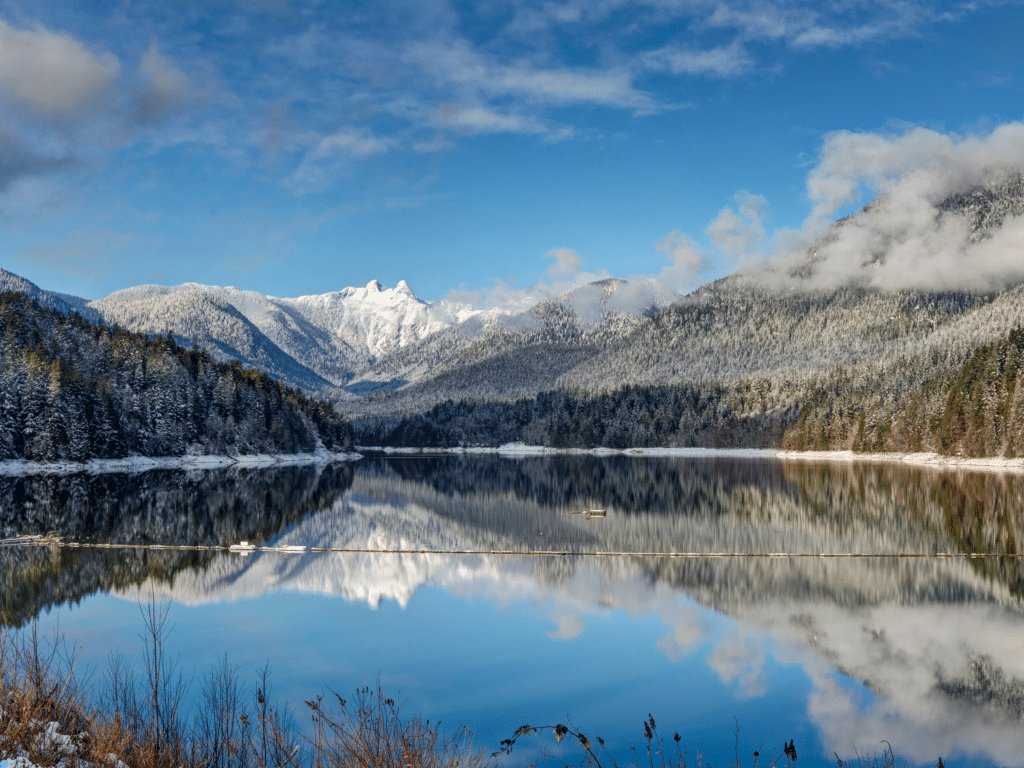
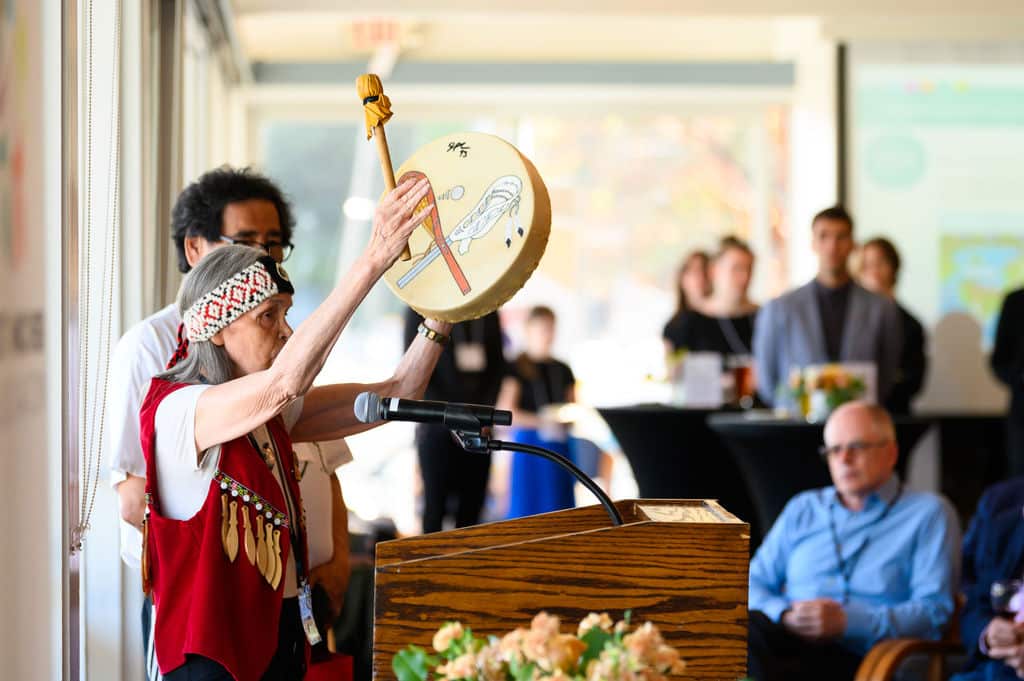
Impact Stories
In collaboration with the Sḵwx̱wú7mesh Úxwumixw (Squamish Nation), the District of West Vancouver hosted National Indigenous People’s Day in Ambleside Park. The event brought together West Vancouver residents and their Indigenous neighbours to celebrate, appreciate and learn about the traditional territory of the of the Sḵwx̱wú7mesh Úxwumixw (Squamish Nation) and engage with local Indigenous artists, creators, and storytellers. Read more>>
Indigenous Cultures Program
The Vancouver Art Gallery’s Indigenous Cultures Program featured a mixture of engaging online and in-person programming that has increased understanding of Indigenous lives and experiences in the community. The Gallery continued its efforts to decolonize by providing opportunities for Indigenous artists to showcase their work through special projects and exhibitions. Read more about it here>>
Ch'ich'iyuy Canoe Program

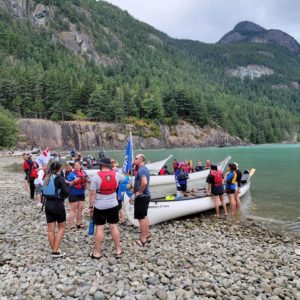
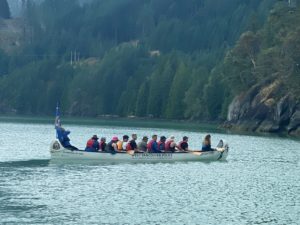
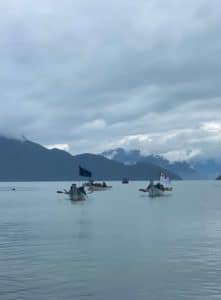
The Ch’ich’iyuy canoe program was established by the West Vancouver Police Department and works in partnership with the Squamish Nation to engage youth and work towards reconciliation. In 2021, a 2 day pulling together canoe journey went from Porteau Cove to Pot Latch. Many new youth and youth veterans and well as the current and retired Chief of Police participated. The program benefits many members from our community and allows for participants to learn more about the land in which we live on.
Funding was provided from the Howard Martin Memorial Fund and the Thunderbird Marine Corp Fund.
Indigenous Peoples' Day Celebration
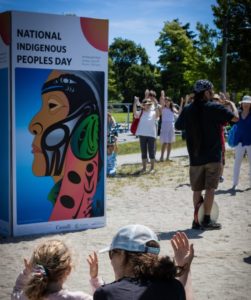
The Indigenous People’s Day Celebration held on June 20th 2021 in Ambleside Park was a day of story telling and learning about the people and the traditional unceded territory of the Sḵwx̱wú7mesh Úxwumixw (Squamish Nation). Community members participated and learned about the cultural significance of woodcarving, wool weaving and print making techniques from four different Indigenous artists. Canoes Ch’ich’iyuy and Sema7maka were on site and their canoe families engaged with the public through dance, drumming and story telling. It was a day of building relationships and celebrating the rich culture of Indigenous Peoples.
Funding was provided from the Smart & Caring Fund and the Howard Martin Memorial Fund.
2022 Vital Signs
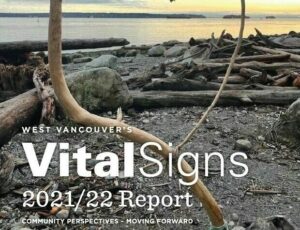
For our 2022 Vital Signs report, we surveyed over 500 North Shore residents and asked them about their opinions on a variety of topics.
83% of residents surveyed feel it is important to foster, learn about, and respect Indigenous culture, values, and traditions. 70% of respondents acknowledged September 30th, 2021’s National Day for Truth and Reconciliation.
We encourage everyone to be part of the conversation. Education and learning about new history can begin by reading the 94 Truth and Reconciliation Calls to Action.
Read the full 2022 Vital Signs report.
Kayachten
Welcome Pole
We are very honored to have been involved in this heartwarming, meaningful and impactful project – Kayachten – Welcome Pole Restoration project at Lookout Housing Society. This project saw Kayachten, the Welcome Pole, brought back to its original glory, proudly uniting the Squamish Nation and the North Shore community, and was dedicated to helping the North Shore homeless population.
This project received funding from the Nancy Farran Compelling Opportunities Fund, at the Foundation.
Be The Bear
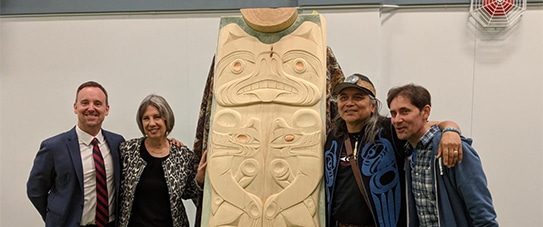
In the true spirit of ‘celebrating the greatness of us,’ the West Vancouver Foundation helped to facilitate the community of funders of Caulfeild Elementary’s Welcome Figure. The students and teachers at Caulfeild Elementary School have been intentionally creating deeper connections to Indigenous learning with the Skwxwú7mesh (Squamish) Nation for a number of years.
Elder's Bannock
Making Kits
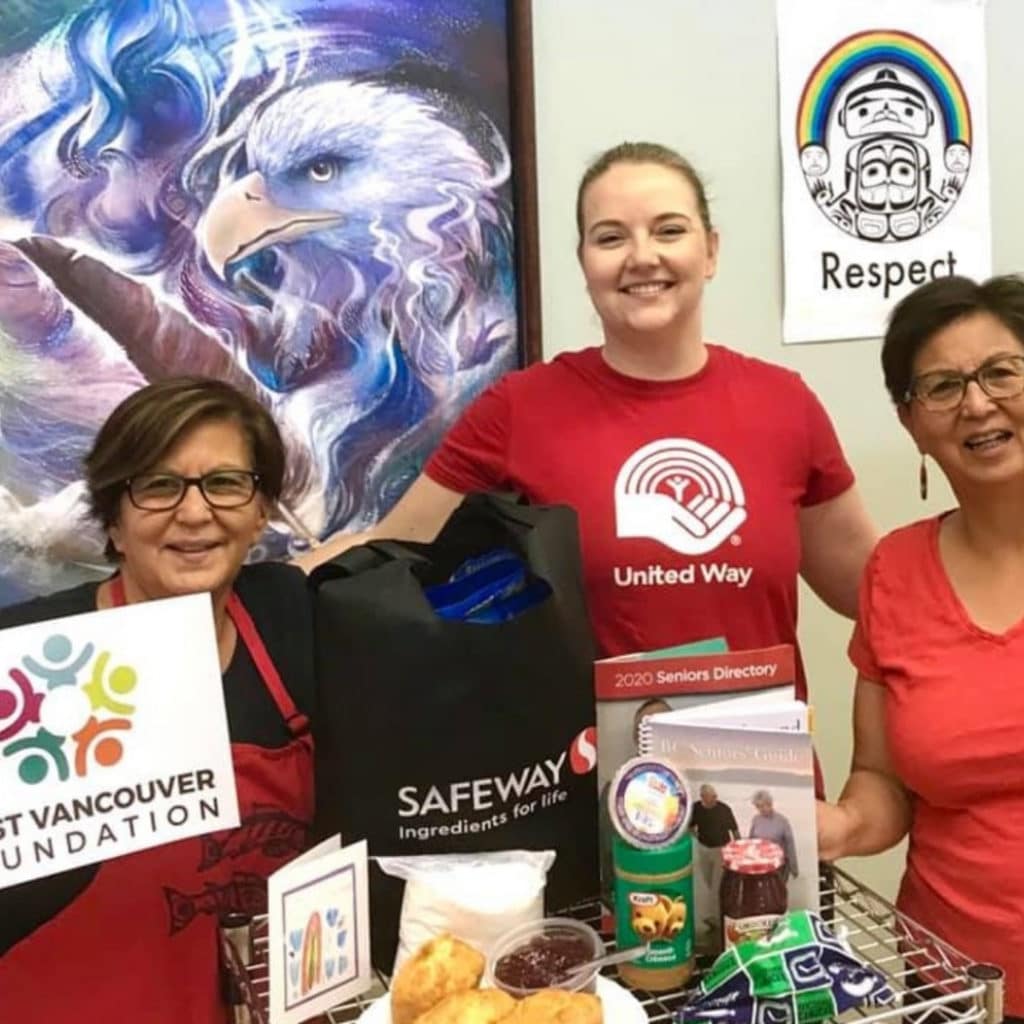
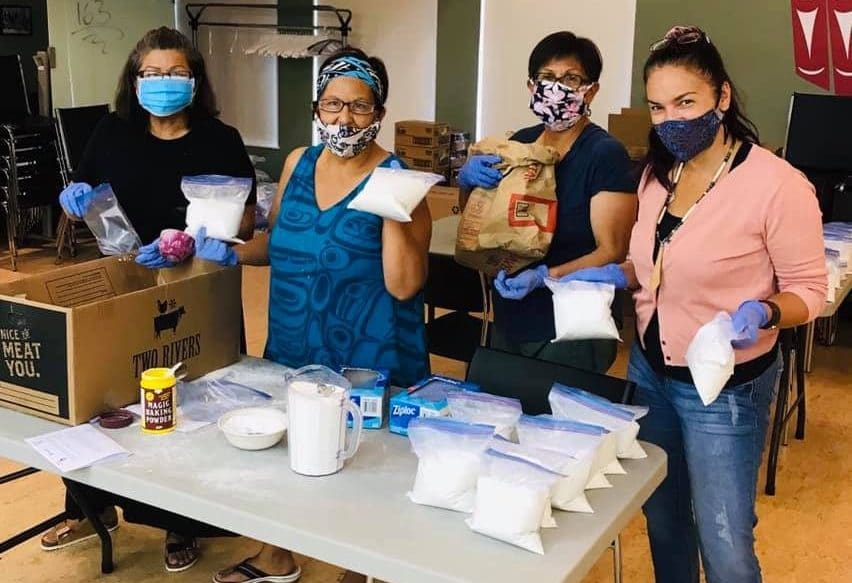
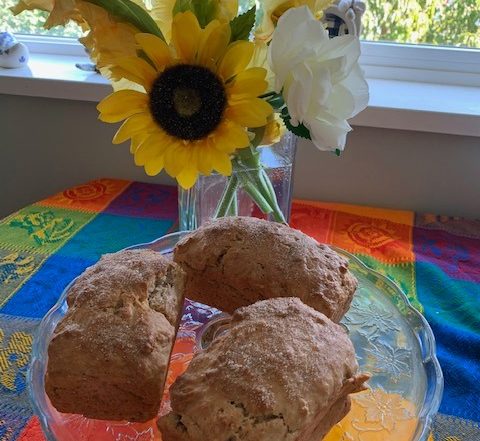
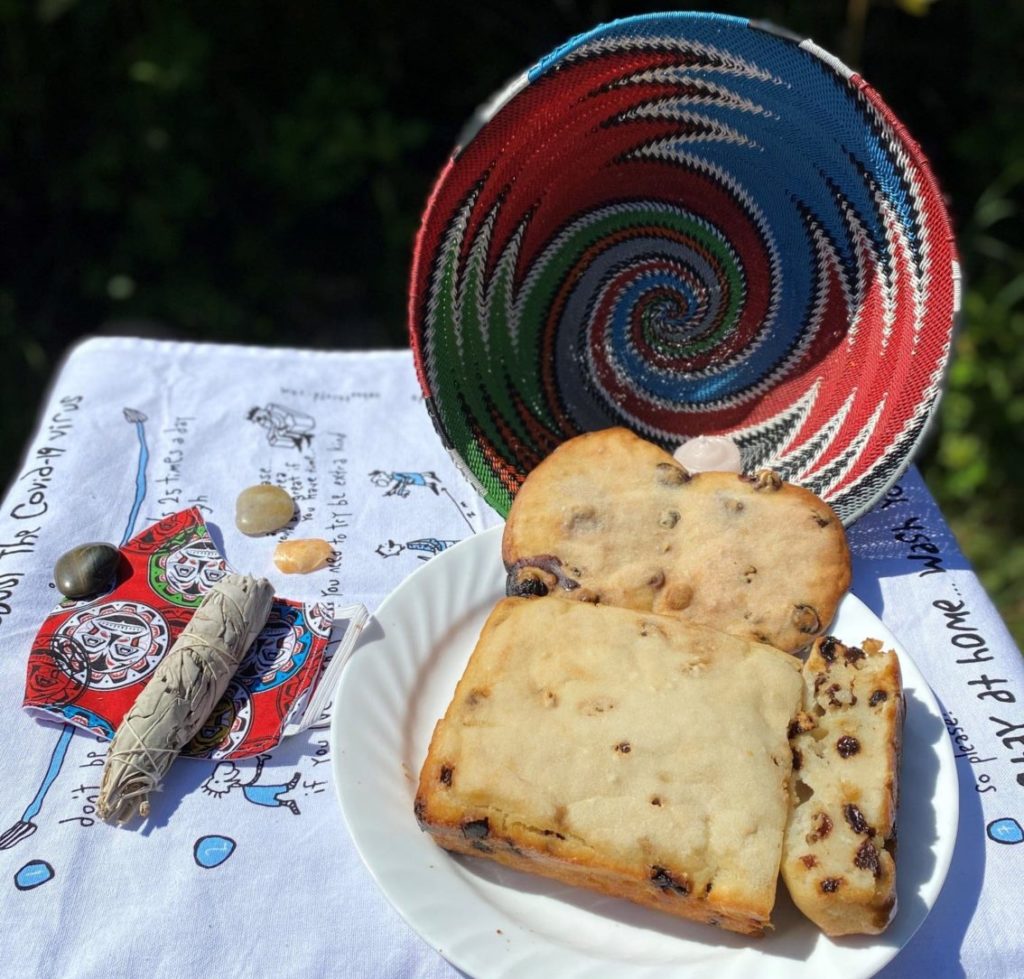
As part of the Neighbourhood Small Grant Program, Monica, Lucy and others got together to create care packages for 250 Elder’s so they could make and enjoy their own bannock, during COVID-19.
“Our Elders had been asking for fresh, baked bannock bread. Bannock is a staple in many of our community gatherings and celebration meals. Our Elders were missing this since COVID has prevented them from gathering. Many Elders also did not know how to make it, so I thought why not create a kit where they could make it at home! With the help of my community and team at Squamish Nation, I was able to bring our Elders a bannock making kit, which included the recipe so they could make more in the future.”
